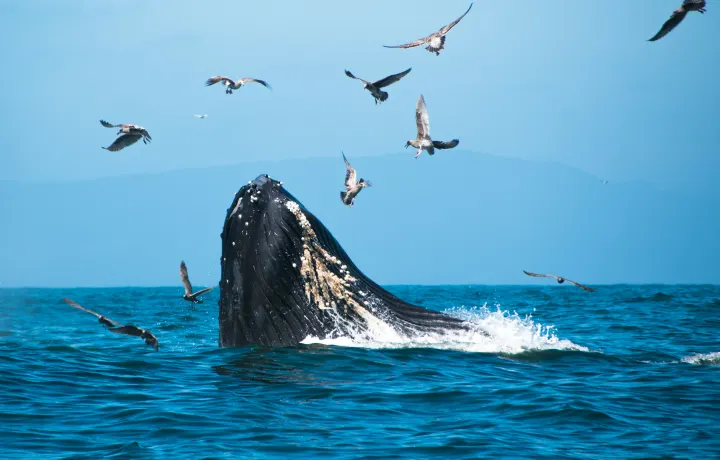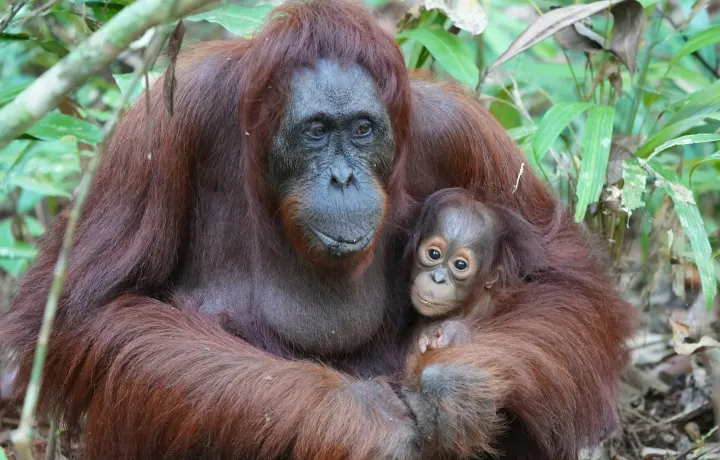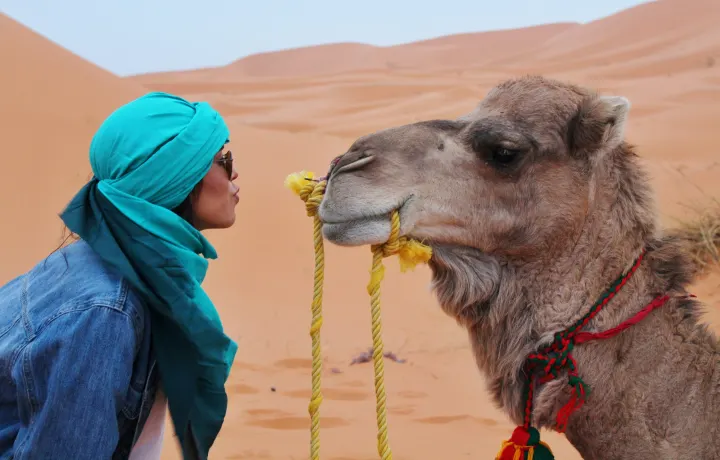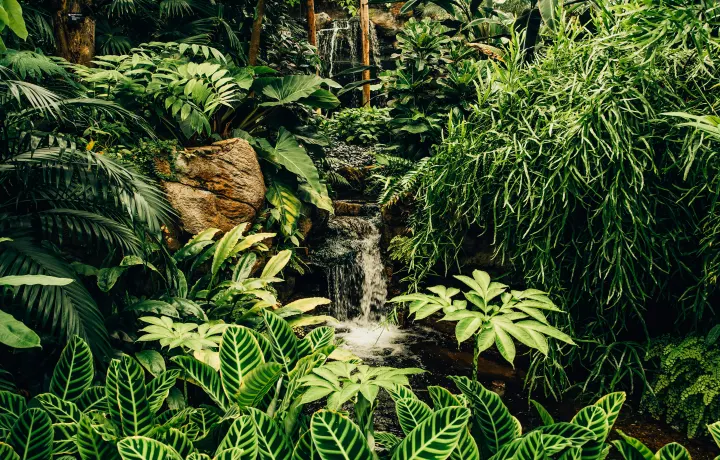Science
- TIME
Penguins are key indicators of the ocean's health
informed Summary
- African penguins, a species in drastic decline, are struggling to find enough food for their chicks due to shrinking fish stocks, largely caused by overfishing for animal feed. Projections show this species could be extinct in the wild by 2035.
Science4 min read - CNN
How China and Russia are vying to disrupt America’s military edge in outer space
informed Summary
- Russian forces launched a cyberattack on Ukraine's satellite communications network an hour before their ground assault began in February 2022, disrupting command and control and affecting internet access across Europe. This highlighted the vulnerability of satellites -- which are increasingly critical for military operations -- to cyber warfare.
Science10 min read - El Pais
The world urgently looks for alternatives to lithium batteries
informed Summary
- Researchers are looking into the possibility of using abundant elements like sodium and calcium as substitutes for scarce and environmentally harmful materials like lithium, cobalt and nickel in battery production. Sodium-ion batteries are being developed by Tiamat Energy, and while they cannot compete with the range of current storage systems, they could be suitable for shorter car trips.
Science5 min read - Neue Zürcher Zeitung
Dimming the sun to cool the earth: Is solar geoengineering the future?
informed Summary
- Solar geoengineering, a field focused on developing methods to artificially reduce the intensity of solar radiation, is widely considered to be a potential solution to climate change. One method -- stratospheric aerosol injection -- involves spraying sulfur particles into the stratosphere to block part of the solar radiation, leading to dropping temperatures.
Science7 min read - NPR
What are sperm whales saying? Researchers find a complex 'alphabet'
informed Summary
- A new study has found that sperm whales have a more nuanced communication system than previously thought, with researchers at the Massachusetts Institute of Technology and Project CETI identifying a larger lexicon of sound patterns, similar to an "alphabet", that could potentially be combined to convey meaning.
Science4 min read - NPR
Largest-ever marine reptile found with help from an 11-year-old girl
informed Summary
- In May 2020, 11-year-old Ruby Reynolds and her father, Justin Reynolds, discovered a piece of fossilized bone on a beach in Somerset, England, which turned out to be part of the largest marine reptile ever found -- a giant ichthyosaur from 202 million years ago.
Science4 min read - El Pais
Researchers identify new genetic form of Alzheimer’s that is present in millions of people
informed Summary
- A study led by neurologist Juan Fortea from the Sant Pau Hospital in Barcelona has analyzed brain samples and scans from more than 13,000 people to observe the effect of carrying two copies of the apolipoprotein 4 gene (APOE4). The study found that 95% of the 500 patients who carry this variant have early biological markers related to Alzheimer’s, such as a build-up of amyloid protein in the brain.
Science6 min read - NPR
Orangutan in the wild applied medicinal plant to heal its own injury, biologists say
informed Summary
- A wild orangutan in Indonesia, named Rakus, was observed treating a wound on his face with a medicinal plant, marking the first known case of active wound treatment in a wild animal with a medical plant.
Science5 min read - Vox
How La Niña will shape heat and hurricanes this year
informed Summary
- The Pacific Ocean's warm phase, El Niño, is winding down and is expected to transition into its counterphase, La Niña. El Niño has been responsible for altering rainfall, heat waves, and drought patterns across the world, causing wildfires, droughts, floods and extreme heat.
Science6 min read - Vox
Could bird flu cause a human pandemic?
informed Summary
- The H5N1 avian flu virus, also known as bird flu, has been found in cows on 34 dairy farms across nine U.S. states, leading to concerns about the potential for the virus to mutate and spread to humans.
Science7 min read - Vox
The end of coral reefs as we know them
informed Summary
- The world is approaching a 1.5°C increase in global temperature relative to preindustrial times, a threshold that scientists have warned could lead to the death of 70 to 90 percent of coral reefs globally. At 2°C, more than 99 percent of coral reefs could die off.
Science5 min read - AP News
Europe is the fastest-warming continent, at nearly twice the average global rate
informed Summary
- Europe is the fastest-warming continent, with temperatures rising at roughly twice the global average, according to a joint report by the UN's World Meteorological Organization and the European Union’s climate agency, Copernicus.
Science2 min read - NPR
Startups want to geoengineer a cooler planet. With few rules, experts see big risks
informed Summary
- Make Sunsets, a company founded by Luke Iseman and Andrew Song, is experimenting with solar geoengineering by launching balloons filled with sulfur dioxide and helium into the stratosphere to reflect sunlight and counter global warming. The company claims that the three balloons they launched offset the warming of 175 gas-powered cars for a year.
Science14 min read - El Pais
Between laziness and germophobia: How often should you wash your hands?
informed Summary
- A survey by the New York Post in late 2023 revealed that almost half of Gen Z university students wash their hands 10 times or more daily, leading to discussions about what constitutes normal hygiene. Mireia Cantero, a Spanish public health professional, said that the situation is more important than the frequency of handwashing.
Science2 min read - CNN
Jane Goodall is world-famous for her work with chimpanzees. Now her focus has turned to a different crowd
informed Summary
- Jane Goodall, the renowned British primatologist, is empowering young people to create change within their communities through her program called “Roots & Shoots.”
Science3 min read - El Pais
An object from the sky smashed through my roof: Space debris is starting to be a problem
informed Summary
- A "grazing meteoroid" that crossed the sky of the Spanish Mediterranean coast on Good Friday highlighted the importance of controlling space debris. The European Space Agency reports that around 11,500 tons of objects are moving at high speed above Earth, including one million pieces of waste measuring between one and 10 centimeters, and 36,500 larger objects.
Science4 min read - CNN
Camels evolved from a cold-weather ancestor. We could learn from their remarkable transformation
informed Summary
- In this article, CNN's Bill Weir discusses the adaptability of camels and gentoo penguins to changing climates. Camels evolved over millions of years to survive in hot climates, while gentoo penguins are thriving in the Antarctic by moving farther south and changing their nesting habits.
Science7 min read - CNN
Highlights from the total solar eclipse
informed Summary
- The total solar eclipse that swept across Mexico, the U.S. and Canada has completed its journey over continental North America. The celestial spectacle was last seen along the Atlantic coast of Newfoundland, Canada, and first experienced in Mazatlan, Mexico.
Science4 min read - Vox
Are rainforests doomed? Not necessarily.
informed Summary
- The planet lost 9.2 million acres of its tropical forest in 2023, equivalent to about 10 soccer fields of forest per minute for an entire year, according to data from the World Resources Institute and the University of Maryland. This loss has contributed to the extinction crisis and climate change.
Science5 min read - Sky News
Moon to get its own time zone created by NASA - but clocks work differently there
informed Summary
- The White House has directed NASA to develop a unified lunar time standard, known as Coordinated Lunar Time (LTC), by the end of 2026. This will provide a time-keeping benchmark for lunar spacecraft and satellites.
Science2 min read


















